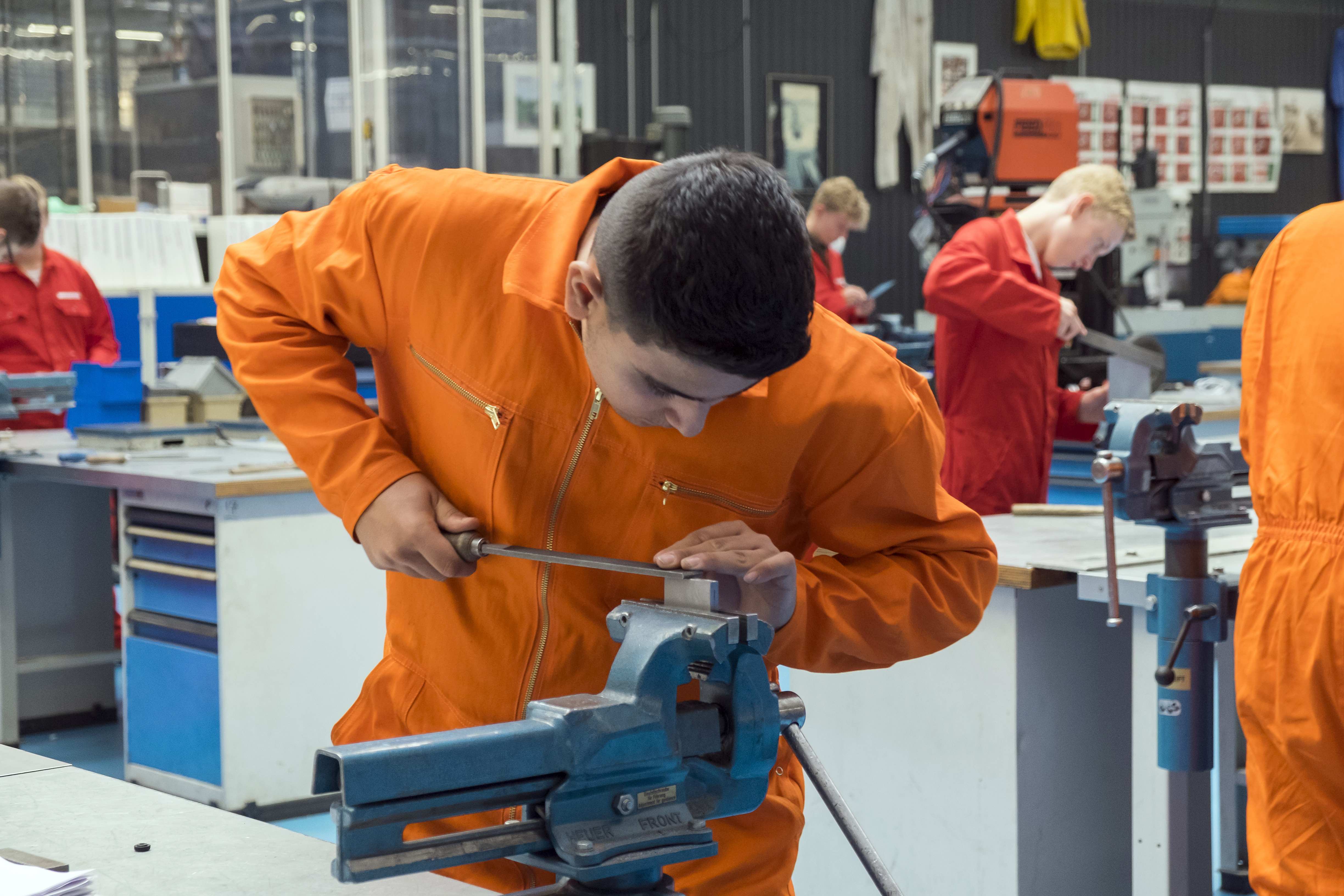Concerns grow over loss of technical training in secondary schools

A group of entrepreneurs has raised concerns over the phasing out of the seventh specialisation year in secondary education in Flanders. With many schools already discontinuing these programmes, the business world fears a significant loss of valuable technical expertise. The chemical and construction sectors, in particular, are concerned about the impact on their future workforce.
In a letter to Flemish Education minister Zuhal Demir of N-VA, the entrepreneurs are urging the government to reconsider the phase-out.
“Seventy per cent of the new process operators in Antwerp’s chemical sector come from the seventh specialisation year,” said Kris Bosch of the industry federation Essenscia.
Until now, pupils in labour market-oriented tracks could only earn their diploma after completing a mandatory seventh year. However, from the 2024-2025 school year, pupils will receive their diploma after six years without the extra year.
"Technical knowledge and skills will be lost while we desperately need them"
As a result, many schools are discarding the seventh year due to a lack of interest. At the Spectrumschool in Antwerp, all full-time specialisation years, including those for electrical engineers and metal fitters, have been cancelled. With a diploma after six years, students see little reason to continue.
In their letter, 21 industry and employer organisations argue that this reform overlooks the needs of the job market. Signatories include Voka, Agoria, Essenscia, the Flemish Port Association, Fevia and the Steel Industry Association. “Technical knowledge and skills will be lost while we desperately need them,” they argue.
Social challenges
The impact is particularly troubling for the chemical sector. “Without this influx, all the major chemical players in Antwerp will be in trouble - think BASF, INEOS, Covestro and Envalior,” says Bosch.
"Many pupils get permanent contracts straight after their internship or are actively headhunted"
Other industries are also concerned. The wood and construction sectors rely on seventh-year graduates in roles like interior builders, roofers and carpenters. “We absolutely need them to tackle major social challenges like the housing shortage and the renovation wave,” says Caroline Deiteren of Embuild Flanders.
The seventh year also offers increased job prospects. “Almost everyone finds work immediately,” Bosch adds. “even get permanent contracts straight after their internship or are actively headhunted.”
Government holds its ground
Despite the concerns, the chances of the government reversing the change are slim. “All parties involved were aware and have had time to prepare,” Demir’s office said.
Demir defends the reform, pointing to flaws in the old system. “Students aiming for higher education had low pass rates," she said. "Those who wanted to work didn’t get the vocational training they needed because of the large block of general education still in place.”
To address waning interest, Demir has made the seventh year more flexible. It no longer has to last a full year and can now be started twice a year.
Critics remain unconvinced, however. “The idea that young people are ready to leap into higher education is incorrect,” says Vickie Dekocker of Agoria. “And if they try, their chances of success are low. Many schools are dropping these programmes entirely, and that makes it even harder to find qualified workers for technical jobs.”
#FlandersNewsService | © PHOTO HOLLANDSE HOOGTE
Related news
